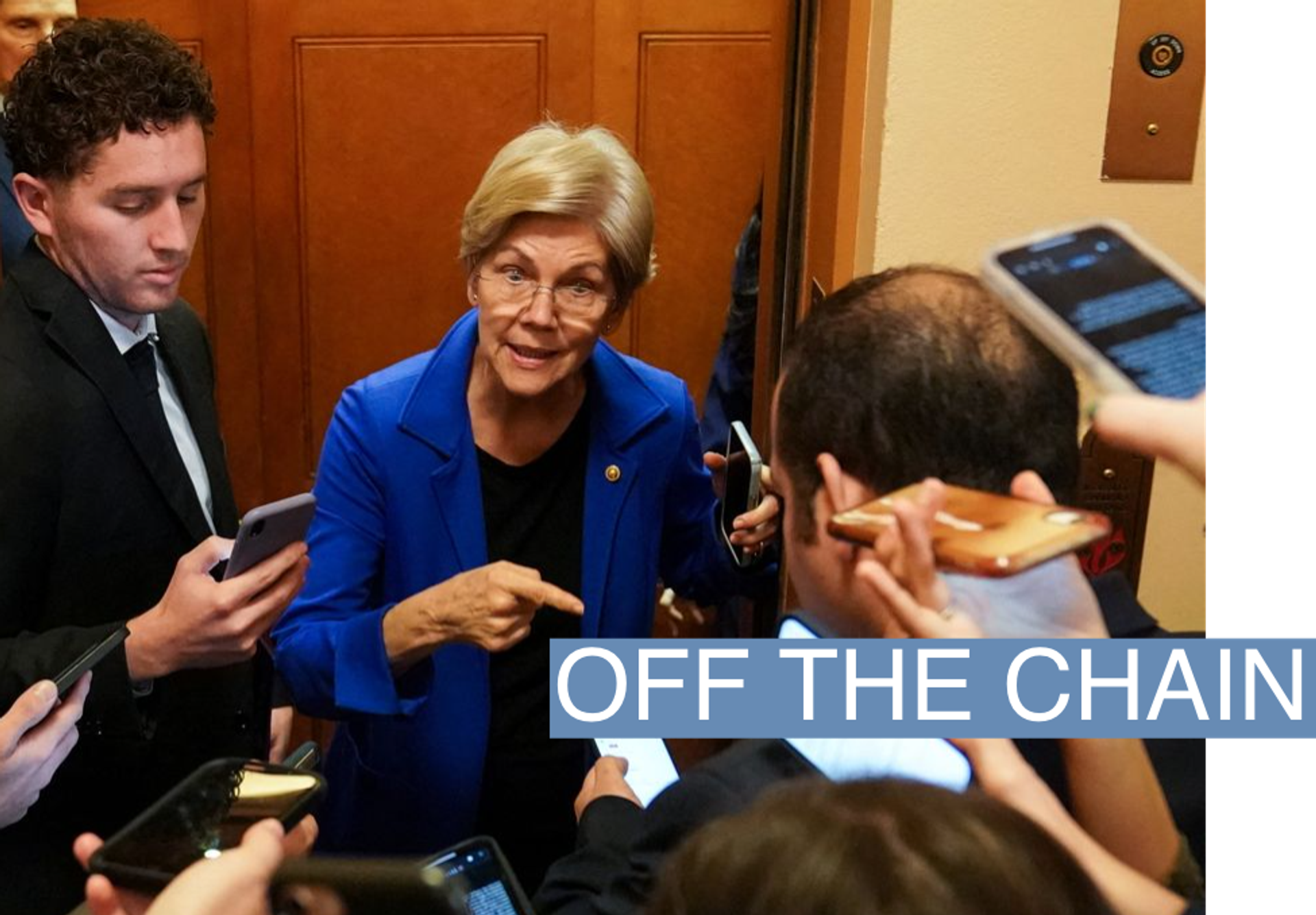The News

Sen. Elizabeth Warren, D-Mass. is working on a sweeping cryptocurrency bill that would hand the Securities and Exchange Commission most regulatory authority over the market, according to two people familiar with her efforts.
While discussions are still early and details could change, Warren’s office is looking at a range of crypto-related issues, including regulations, taxation, climate, and national security. The senator has recently stepped up her criticism for the industry and demanded “comprehensive” new rules to govern it following the massive collapse of the crypto exchange FTX. (FTX founder Sam-Bankman Fried is an investor in Semafor.)
Ideas on the table in Warren’s talks also include ensuring broker-dealers and crypto exchanges comply with certain regulatory obligations like providing audited financial statements, and imposing bank-like capital requirements so they’re able to withstand financial shocks, the people said. Another is barring the commingling of customer assets so a company can’t use customer deposits to finance other investments, and securing them so customers are first in line to get their money back in the event of bankruptcy. It could also further expand tax reporting requirements beyond new rules lawmakers enacted last year
In a recent op-ed for the Wall Street Journal, the senator called on the SEC and other federal regulators to tackle crypto fraud more aggressively, arguing that “Congress should back up these law-enforcement agencies and financial regulators with more funding” and “plug the remaining holes in our regulatory structure.”
“As Senator Warren has already said publicly, she’s working on crypto legislation and believes that financial regulators, including the SEC, have broad existing authority to crack down on crypto fraud and illegal money laundering,” Alex Sarabia, a Warren spokesperson, said in a statement to Semafor.
SEC Chairman Gary Gensler has also suggested at least some crypto products should be treated as securities. “When a new technology comes along, our existing laws don’t just go away,” he said in a speech in April.
But the crypto industry has fought against the idea, which would require token issuers and exchanges to comply with expansive investor protection and disclosure rules designed to prevent fraud.
Industry advocates have instead pushed to have digital tokens regulated as commodities, which tend to face fewer rules and paperwork and a smaller regulator in the Commodity Futures Trading Commission, or continue to bypass most financial regulations altogether, which they argue would give them more freedom to experiment and innovate.
A bill currently being considered by the Senate Agriculture Committee would classify some of the industry as commodities, though the measure is facing mounting scrutiny because it was supported by Bankman-Fried.
In this article:
Joseph’s view
As a leading crypto skeptic, a Warren bill could set a new baseline for advocates trying to rein in the industry. Warren, who played an influential role outside Congress crafting Wall Street regulations after the 2008 crash, has been one of a number of lawmakers urging additional scrutiny of crypto in the wake of the collapse of FTX.
“Finally, there are more people blowing the bullshit whistle,” she told Semafor last week.
Room for Disagreement
Despite some increased skepticism towards their efforts, lawmakers working on the FTX-favored bill in the Agriculture Committee that would regulate cryptos as a commodity say they plan to move forward. Sen. Debbie Stabenow, D-Mich., a co-sponsor, has also pushed back on the premise that her bill would prevent agencies like the SEC from overseeing the industry in conjunction with the CFTC.
“No single financial regulator has the expertise or the authority to regulate the entire industry,” she said at a hearing on FTX’s collapse last week. “We continue to work with our colleagues on the Senate Banking Committee and at the Securities and Exchange Commission and other financial regulators to bring greater protections to this market regardless of whether the asset is a security or a commodity.”